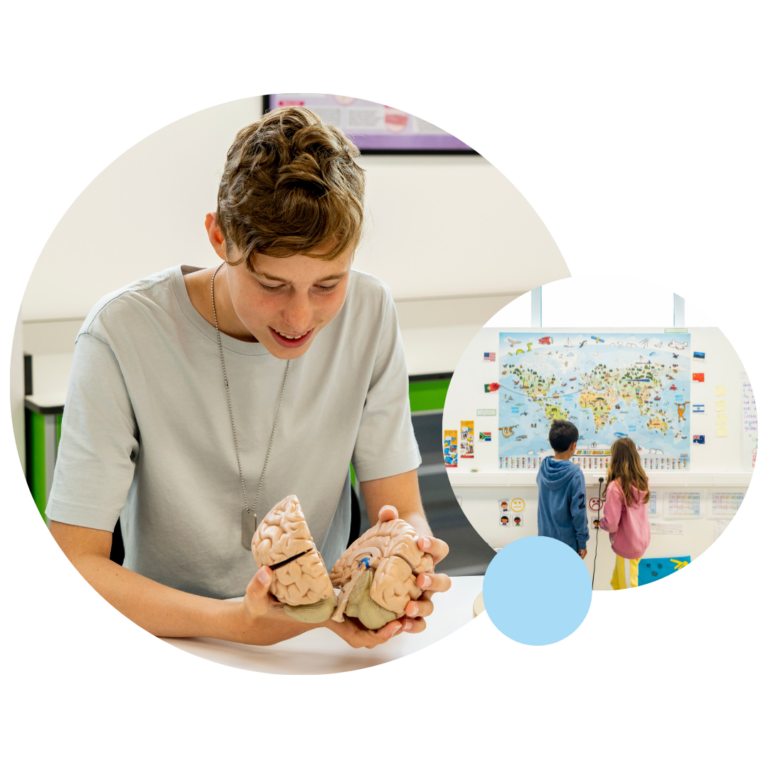A member of the Dukes Education family of schools, United Lisbon International School is a modern and innovative school providing education for children to prepare them for the future. Technology, Global Citizenship, Entrepreneurism, Sports and Performing Arts are all pillars for our education. We provide education founded on rigorous standards of excellence, seamlessly integrating technology into the learning environment. We want our students to embrace the opportunities created in tomorrow’s world. We live the United philosophy at school: that global problems can only be solved through being UNITED.
We are a K-12 school for kids from ages 3-18 with our first IB students graduating in 2024, following an American international curriculum and the IB diploma for grades 11 and 12. We are proud to be an accredited IB World School and a candidate school for NEASC. We have prioritized technology as a core for an education for the future and have worked hard to become a Microsoft Showcase School. Our state-of-the-art Maker Space teaches our kids about coding, robotics, 3D printing, Minecraft and much more. ULIS has invested in over 6,500 sqm of outdoor spaces, allowing our kids have lots of fresh air and sports during the day despite being in an urban setting. As we had the opportunity to design our facilities from scratch, our science laboratories and art spaces are kitted out with the most modern equipment to enable our faculty to work with our kids to achieve their true potential.
Our school community now boasts of over 50 nationalities – representing a truly international community. We now have over 600 students (as of January 2024) and a fabulous international faculty that brings years of international education and cultural experience. We work with good extra-curricular activity providers in the area to give our children the opportunities to work with the best in class while pursuing their activities interests. Partners include the Lisbon Racket Centre, Sporting Athletic Club and other local clubs.
Being a member of the Dukes family of schools, students at ULIS benefit enormously from international exchange and summer camp opportunities, as well as sports competitions. Dukes has superb career counselling, Internship and college counselling experience and platforms for children wishing to go to universities in the US, Europe or the UK. Teachers have access to the world-class leadership and professional development offerings of Dukes. Parents with children at ULIS will tap into a huge network of like-minded families and learning opportunities within the Dukes community.
The current and future collaboration with the United Lisbon Edu Hub for the arts, entrepreneurship, shadowing and internships makes United Lisbon one of the most innovative schools in Europe.


